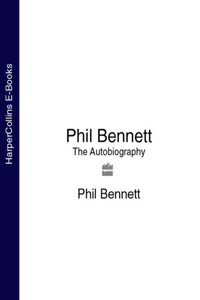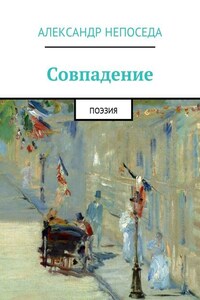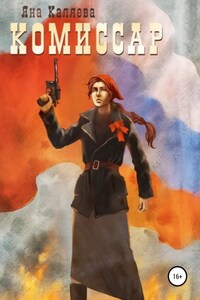First published in Great Britain in 2003 by
CollinsWillow
an imprint of HarperCollinsPublishers
1 London Bridge Street
London SE1 9GF
The HarperCollins website address is:
www.harpercollins.co.uk
Copyright © Phil Bennett 2003, 2004
Phil Bennett asserts the moral right to be identified as the author of this work
A CIP catalogue record for this book is available from the British Library
Statistics by Stuart Farmer at Media Services
All rights reserved under International and Pan-American Copyright Conventions. By payment of the required fees, you have been granted the nonexclusive, non-transferable right to access and read the text of this e-book on screen. No part of this text may be reproduced, transmitted, downloaded, decompiled, reverse engineered, or stored in or introduced into any information storage retrieval system, in any form or by any means, whether electronic or mechanical, now known or hereinafter invented, without the express written permission of HarperCollins e-books.
Source ISBN 9780007162550
Ebook Edition © JULY 2015 ISBN: 9780008161217
Version: 2015-08-04
HarperCollinsPublishers has made every reasonable effort to ensure that any picture content and written content in this ebook has been included or removed in accordance with the contractual and technological constraints in operation at the time of publication.
To my wife, Pat, and my sons, Steven and James.
Phil and Graham would like to thank the following people for their help, support and encouragement along the way:
John Williams and Felinfoel Primary School staff, Mervyn Bowen and Coleshill Secondary Modern School staff, Llanelli Schoolboys coaches and teachers, Felinfoel RFC, Felinfoel Cricket Club, Llanelli RFC players, coaches, committee members and supporters, and everyone else who helped me live the dream of beating the All Blacks: Bob and Mary Bennett, Les and Myrtle Jones, Pat, James and Steven, Terry and Mary Jones, Wendy and Keith John, Tracey and Leigh Francis, Oliver Bennett, Thomas John and Esther Guy, John, Carol and Dave Lloyd, Huw and Carol Owen, Wynford and Pat Thomas, Maldwyn Griffith, Malcolm Hamer, Ian Jones and staff at the recreation and sports department of Carmarthenshire County Council, Leon and Vanessa Lyons, Veris and Geoff ‘The Barber’ Sherlock, Nigel Walker and everyone at BBC Wales, the sports desk staff of The Sunday Mirror, David Evans and staff at the South Wales Evening Post, Tarda Davison-Aitkins and all at HarperCollins, Nick Fawcett, Stuart Farmer, Huw Evans, Margaret Haggerty, Catherine Thomas, Ted, Martha and Isabelle Thomas, Dewi and Shirley Thomas.
There were no tears, no long, lingering, last looks back down the tunnel. There were no laps of honour, not even a trophy. Neither were there any emotional farewell speeches in the dressing room. I paused for a moment as I walked towards the dressing-room door, but that was just to catch my breath. I was exhausted. But I was also the happiest and most relieved I had ever felt in a Welsh jersey. We had beaten France and I had led my country to a Grand Slam.
I’d run off the field. Not because it was my last game for Wales, but because I always ran off the field when I was captain to make sure I could shake hands with the opposition skipper. The noise was deafening. There were supporters running everywhere with wild faces, trying to grab players as they made their way to the dressing rooms. I found Jean-Pierre Bastiat, shook his hand, and he congratulated us before I rushed towards the tunnel. We had done it, I thought. I was tired, my body ached and my head was pounding. But I felt no real pain – just pleasure and huge, huge relief.
I walked into our dressing room and the players I had been alongside for the best part of a decade followed after me – JPR Williams, Gareth Edwards, JJ Williams, Ray Gravell, Bobby Windsor, Derek Quinnell and Terry Cobner. They all looked as I felt, utterly exhausted but content. I walked over to Gareth and told him quietly, ‘That’s it. That’s my last game. It’s been a privilege and a pleasure to play with you, Gar.’ He smiled. ‘Bloody hell,’ he said. ‘You’re getting out, too. That’s my lot as well.’ Typical Edwards, he always produced the unexpected whenever anyone else threatened to steal the headlines. Both of us had spent the week reaching the same conclusion. It was time to go. But we thought we were alone in those decisions; neither of us suspected the other had resolved to do the same.
I had come to my decision after our previous game, in Dublin where we had beaten Ireland at Lansdowne Road to win the Triple Crown. It was the triple Triple. Three times in a row we had claimed the Triple Crown, but this was by far the hardest, the most demanding.








